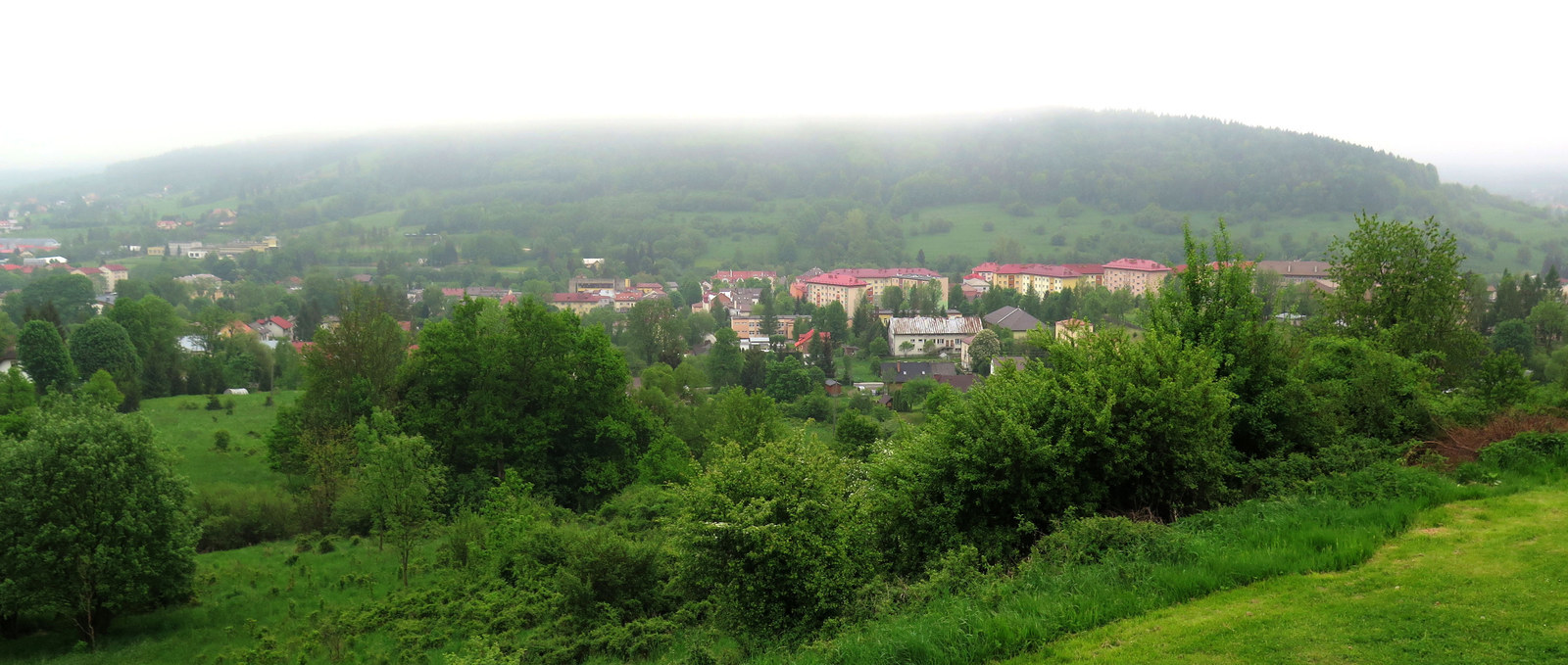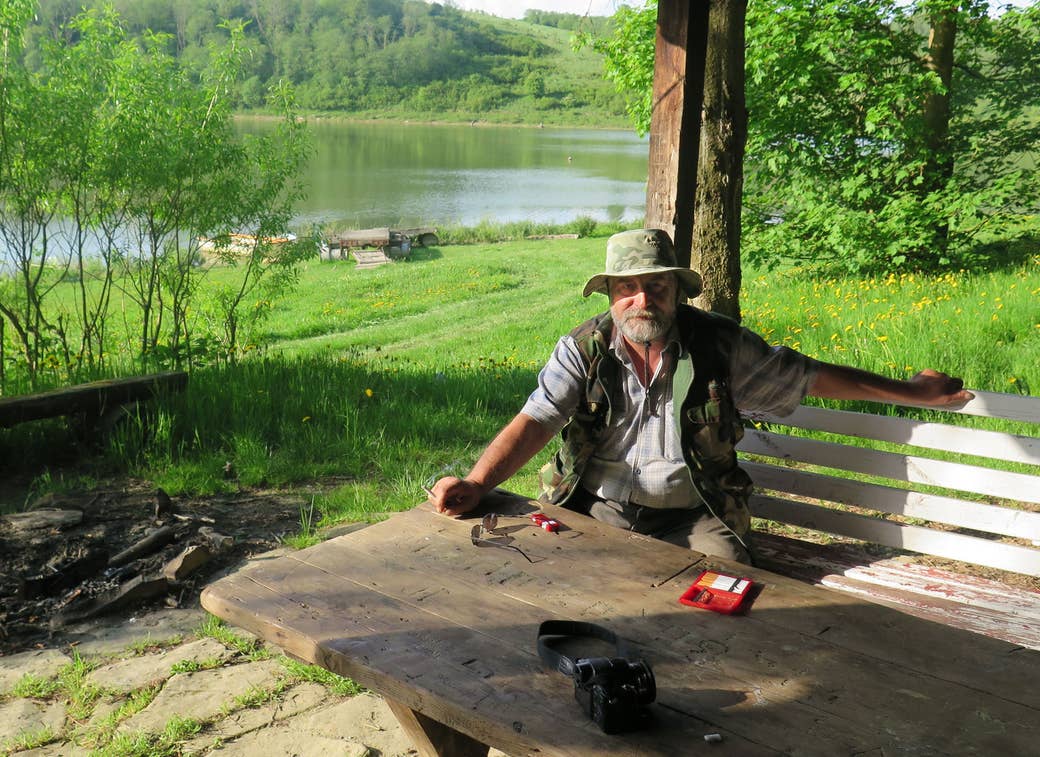
Ustrzyki Dolne is a small town in southeast Poland, close to the Ukrainian border. It and its population of around 10,000 are about as far out in the sticks as a town could be. Nestled among the rolling hills of Bieszczady County in the Dniester River basin, it’s a quiet, tidy place, conservative both politically and socially.
In the centre, there are a few bars and shops and a little market square. It was at this square that Robert Woch, a middle-aged teacher and translator, and his wife, Iwona, the chair of a non-governmental action group, arrived on the afternoon of 22 December 2013.
They could never have known that their lives and reputations were about to be chewed up and spat out by the British media.
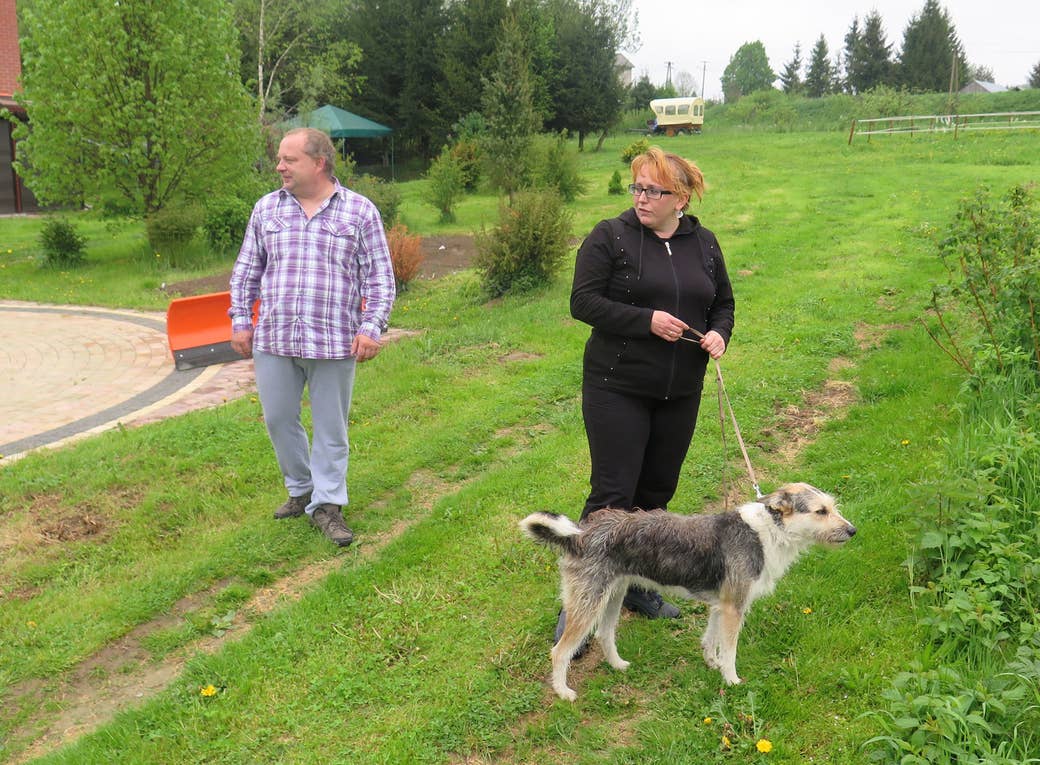
The Wochs had driven there from their home in a small village just outside the town called Brzegi Dolne. Like many houses in rural Poland, it has a large stretch of land out the back, on which they keep three horses.
As a sideline, the Wochs had recently opened a little business offering horse-drawn carriage rides for weddings and other special occasions. The idea was that they would dress as Santa and his helper and ride past the town’s Christmas market to give out sweets to the children. Not only would it be fun, but it would give their business a bit of publicity.
As they arrived in the town centre with their sleigh and costumes, they learned there had been a last-minute change to their route: They had been expecting to ride straight into the market square, but instead were to divert via a little one-way lane that cuts horizontally across the town’s main road. Before setting off, they asked someone to stop the traffic on the road so they could cross it more easily. In retrospect, that decision may have saved their lives.
As they began to head down the one-way road, some ice at the edge of the road made the sledge jump up and hit the horse that was pulling the cart in the back. The animal got scared, and bolted.
“The last thing I remember,” Iwona Woch tells BuzzFeed News as she sits in her living room, “is my husband telling me to cover my head.”
The horse shot across the main road, now fortunately cleared of traffic. Further down the lane, there was a steep set of steps. If the horse had continued galloping, the accident would have been far more serious. But fortunately the sled struck the edge of a brick hut, throwing both of the Wochs out. Iwona was knocked unconscious, but Robert was not.
As Iwona came round, she thought she saw someone taking pictures.
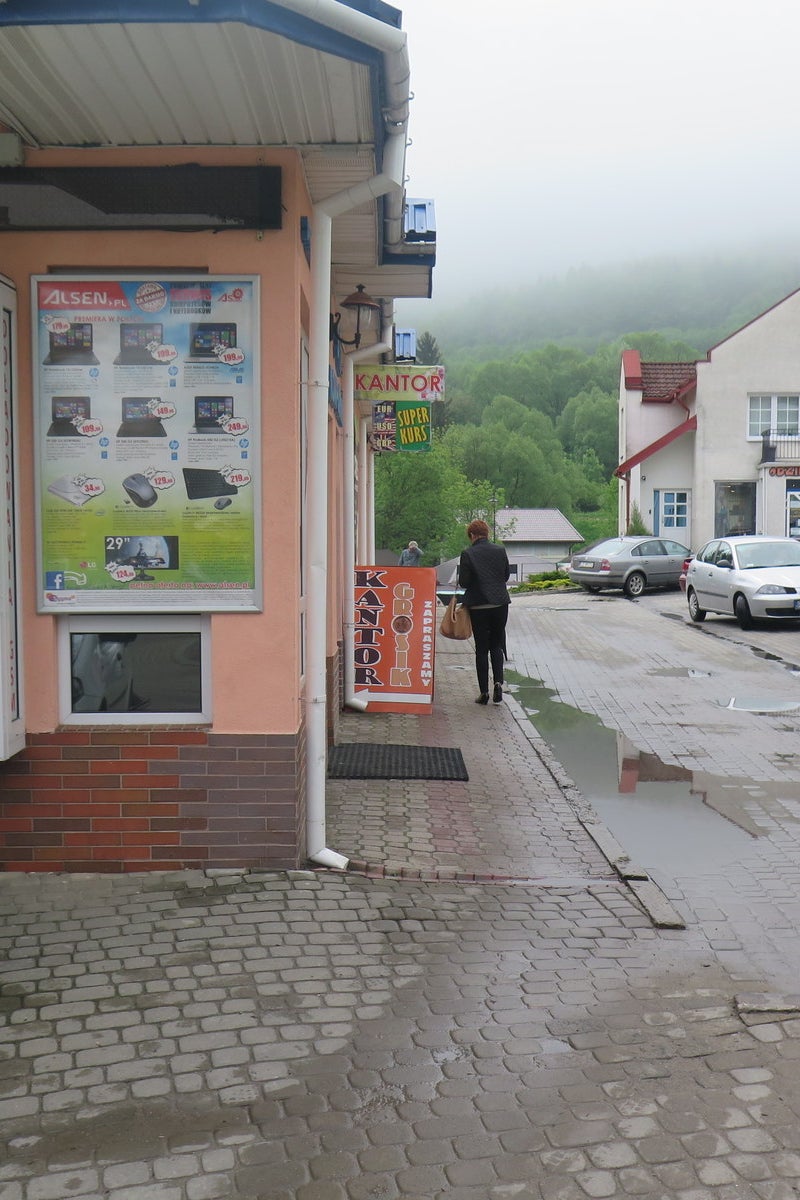
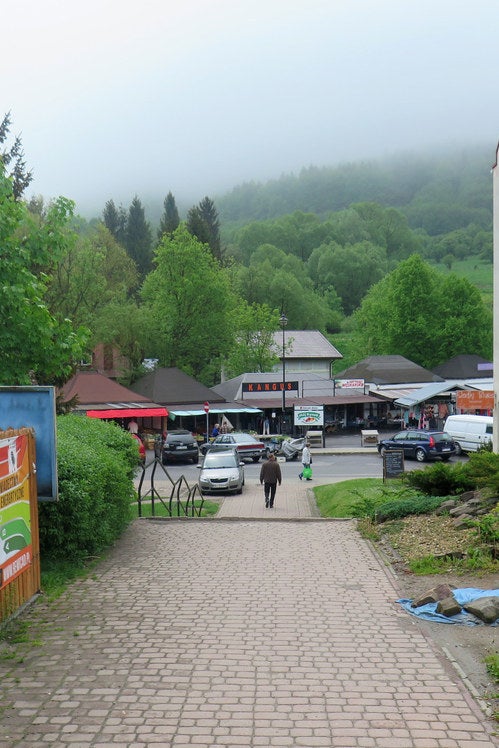
(left) The edge of the building that the sledge hit, throwing Robert Woch and his wife onto to the cobbles. (right) The set of steps that the horse almost bolted down.
On the day of the accident, Zdzislaw Mołodyński – a semiretired security guard – was walking around the Christmas fair in the town. In recent months, Mołodyński had begun to take more and more pictures. Like the Wochs, he’d lived in the area all his life, and he felt that the beautiful town of which he was so proud was somewhat out of the loop when it came to getting coverage in the Polish media. As a result, he’d started uploading his pictures to a website run by TVN, one of Poland’s biggest commercial TV channels.
He saw the horse bolt and the sled hit the corner of the building. He saw how close the incident came to being a tragedy, and started to take some pictures as the emergency services arrived. He uploaded them to the TVN site later that day, describing it as an “unfortunate accident”, and went to bed.
The next day, he woke up as normal and went out to get the paper. Suddenly, a friend charged up to him, angrily asking: “What the fuck do you think you’re playing at?” Mołodyński was baffled.
It was only when he went home and opened his laptop that he realised that something very strange had happened.
Loading up the website of the Daily Mail – the biggest English-language newspaper website in the world – he found it had published a story about the crash, using three of his pictures. They included one of Robert Woch lying face down on the ground in his Santa outfit and another of the emergency services taking Iwona away.
Mołodyński left a comment under the story and on the Mail's Facebook page asking in broken English why his pictures had been used. He says that someone at the Mail deleted the comment from the Facebook page shortly after he posted it.
But it was when he found a Polish translation of the story on a website called natemat.pl that he realised what the story actually said – and quite how much trouble he was in.
The story, as he discovered, bore the following headline:
“Can you be DUI in a sleigh? Santa and his assistant come to grief after crashing into a wall during drunken sled ride through town.”
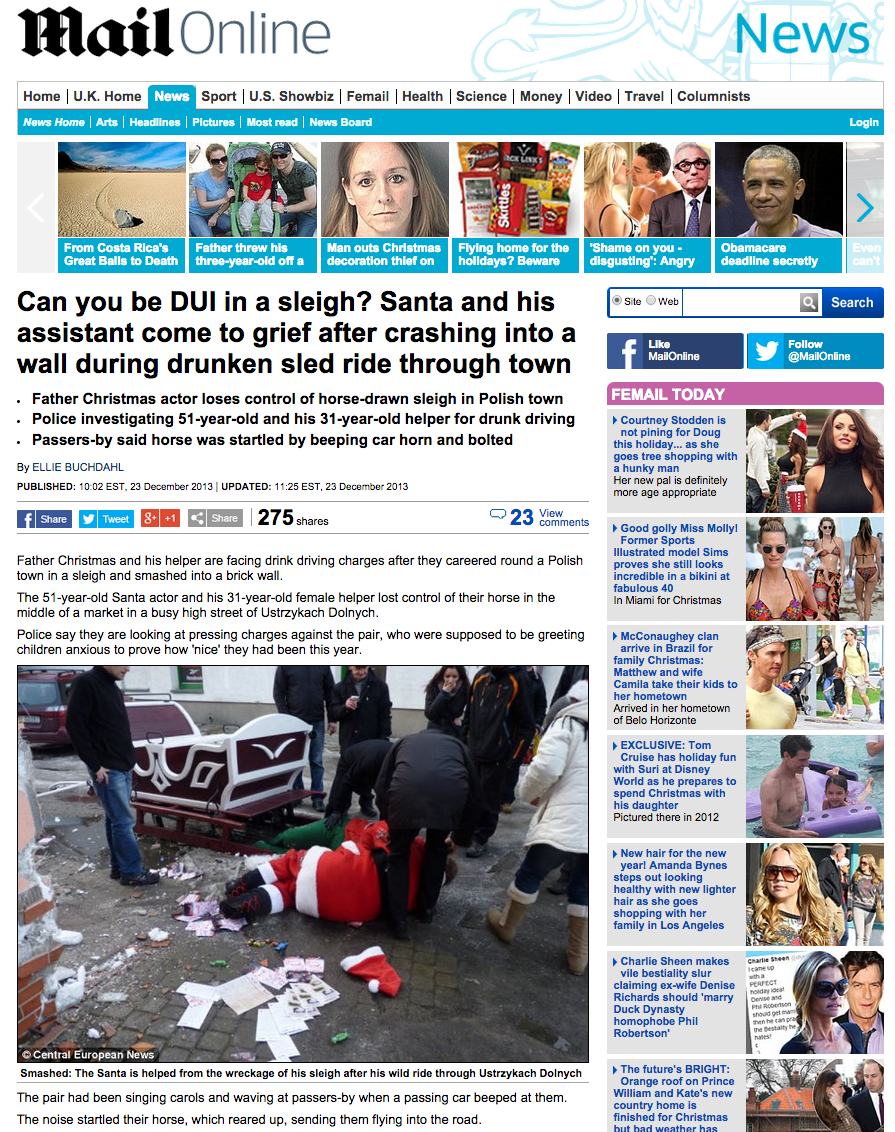
It described how “Father Christmas and his helper are facing drink driving charges after they careered round a Polish town in a sleigh and smashed into a brick wall”, and said the pair “lost control of their horse in a busy street in Ustrzykach Dolnych" (sic). It went on to report that police were “looking at pressing charges against the pair”, who were “supposed to be greeting children anxious to prove how ‘nice’ they had been that year”.
The first person quoted in the story was Mołodyński. The quote read: “It was quite extraordinary. They were supposed to have been an attraction at the local market and lots of people were taking their children there to go and see them.
“But instead they saw these two, who were clearly under the influence, behaving like they had just come out of a nightclub or something.”
The pair had apparently been singing carols and waving at passers-by, but “then a car started beeping them, which threw the horse into a panic," Mołodyński's quote continued. "It reared up and sent them smashing into the wall on the corner of the street. It was a mixture of ‘ho, ho, ho’ and ‘no, no, no’.”
The next quote came from a woman called Magda Dudzinska, who said: "I’m not happy they had a crash or are in hospital, but I’m delighted we didn’t get to meet them. Who knows what they would have done in that state. They were clearly in no state to deal with children."
Finally, there was a quote from a police spokesperson called Dorota Głazowska, who said: "Technically, they were drunk while in charge of a vehicle on the road. We are looking at pressing charges."
BuzzFeed News meets Mołodyński at a lake a few miles out of town, where he regularly spends time fishing with friends. He sits down wearily, takes a long drag on his cigarette, and begins to describe the impact the story had on him.
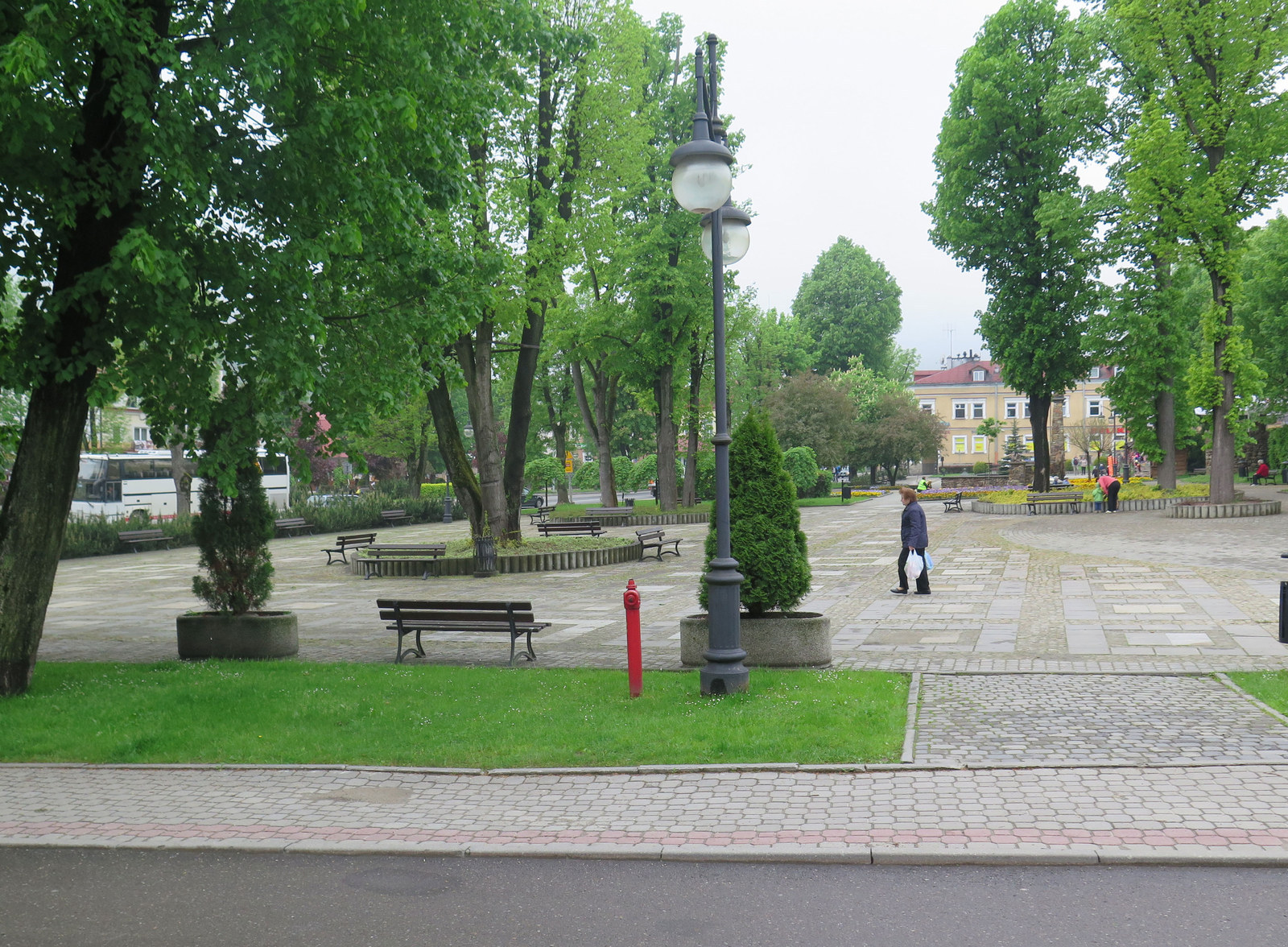
“When I read it,” he says, “I was completely broken.” He knew how much damage such a story could do to people's reputations in such a quiet, small, and proper community.
But the thing he couldn’t understand was that none of it was true. For a start, Mołodyński hadn’t given any quotes to any reporters. “I apparently said that they looked like they’d left a nightclub,” he says. “But there’s no nightclub in Ustrzyki Dolne. And it said I could smell alcohol on their breath – but I have no sense of smell after I had a bad allergic reaction to nicotine medication.”
It’s also hard to work out how a man who can’t speak English could have made a pun relying on rhyming “no” and “ho” – let alone when he’d just seen two people taken away in an ambulance.
It wasn’t the only problem with the story that appeared on the Mail website – or the near-identical versions on the Huffington Post, the Mirror, Metro, and many other aggregator sites. (The Mirror and Metro took their posts down after being approached by BuzzFeed News for this story, but archived versions can be found here and here, while the Mail's is here.)
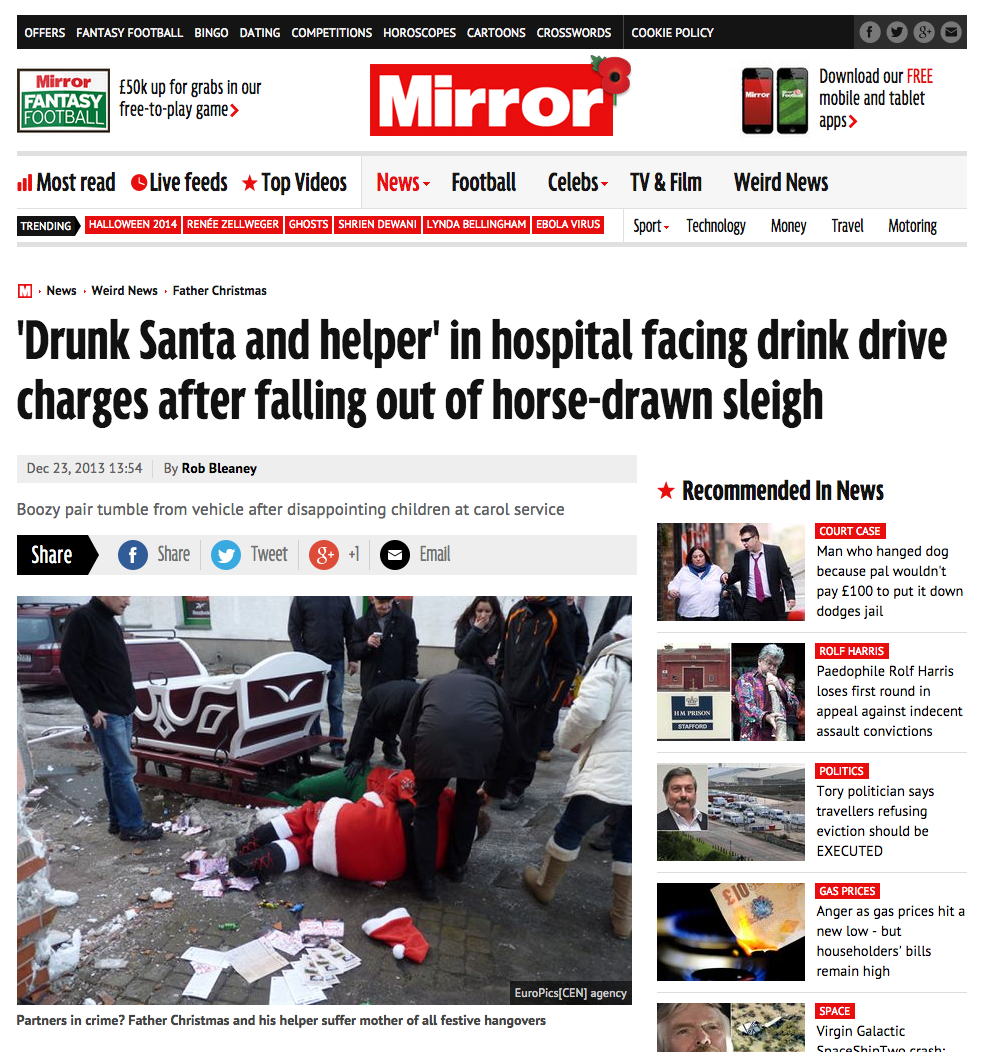
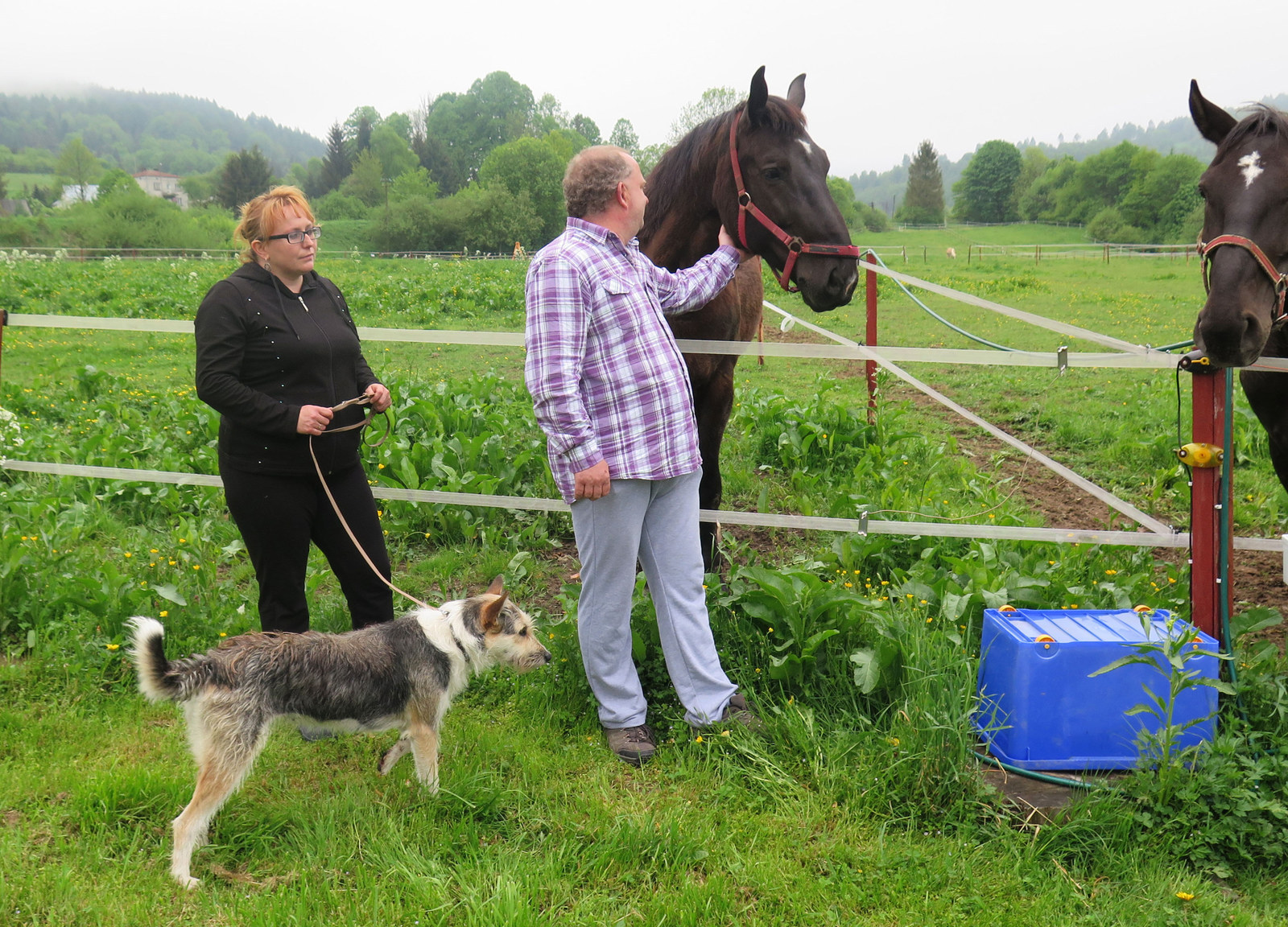
Dorota Głazowska-Krzywdzik (to give her full name), the police officer, had spoken to reporters. But she certainly hadn’t said the words attributed to her.
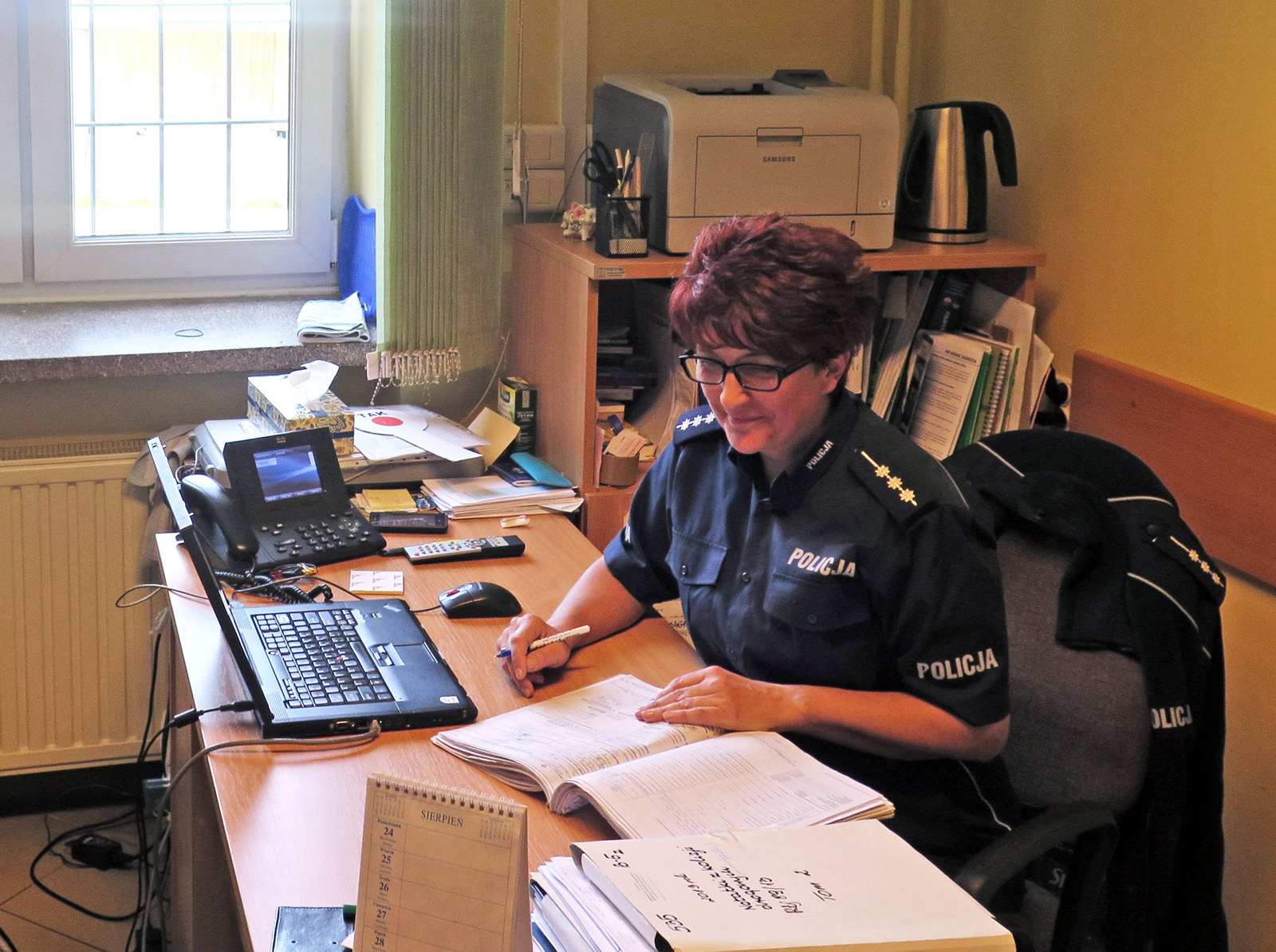
“I was off then but was informed by the duty officer, as it’s part of my job,” she told BuzzFeed News. “In the afternoon TVN called me, as did a local radio journalist. They wanted to confirm that a horse had gone out of control – I merely confirmed that to be the case. They never asked me if the driver was sober.”
Głazowska-Krzywdzik showed BuzzFeed News a police report from the event. As part of standard procedure for such an incident, Mr Woch, the driver of the sled, was breathalysed. The report shows that he wasn’t drunk.
And as for Magda Dudzinska, the other person quoted in the story, no one from the local area has ever heard of her.
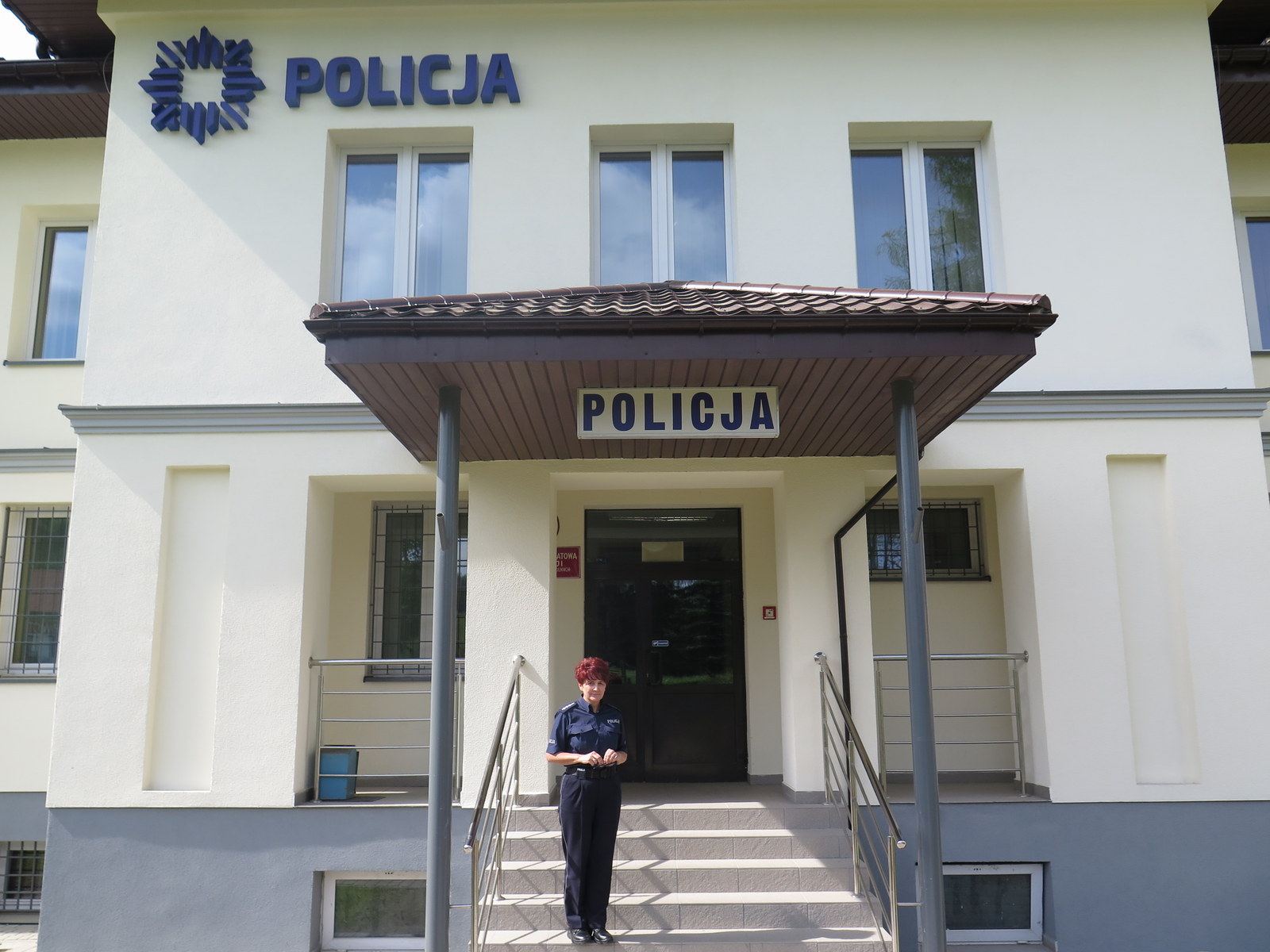
The key to understanding what happened to Zdzislaw Mołodyński lies in three words on the Mail story that appeared on his pictures in the place of the watermark showing they belonged to him and TVN. They read: “Central European News”.
Earlier this year, BuzzFeed News published an investigation showing how this news agency, normally known as CEN, harvests viral news stories from all over the world, often embellishing quotes or fabricating details in the service of making them more alluring or enticing reads, before selling them on to its eager customers in the English-language media, where they appear under its clients’ own bylines. (CEN refused to comment to BuzzFeed News for this story.)
Shortly after seeing the Mail’s story, Mołodyński wrote to the Polish ambassador in London, who complained to Paul Dacre, editor of the Daily Mail. Polish journalists, always keen to take issue with the British tabloid press’s representation of their people as uncouth drunkards, sought to repair the damage to the reputations of the people depicted in the story in a number of pieces. One of these was translated into English by a Polish journalist from Glasgow, Tomasz Oryński, who also provided translation services to the author of this article in Poland – and to Mołodyński when he made a successful complaint to Britain’s Press Complaints Commission (PCC).
As a result of the complaint, the Huffington Post removed its piece (although a video about the story remains live), as did the Mail, which published a brief correction. The Huffington Post told the PCC that it was CEN’s correspondent who had confirmed a “suspicion of drunk driving” with the police – though wherever this confirmation came from, it certainly didn’t come from the local force, as Głazowska-Krzywdzik confirms.
The same correspondent, according to the Huffington Post, claimed that Mołodyński’s original post to TVN contained the rest of the material, including the quotes, but that this had subsequently been deleted. Yet this seems astonishingly unlikely. The original content uploaded by him is still viewable here – and two hours later, TVN published a news post that confirmed Woch was sober. If Mołodyński did indeed make the comments attributed to him, then he uploaded and deleted them with such speed that TVN did not see them, yet CEN somehow did.
Indeed, when BuzzFeed News contacted TVN it was told the station did not receive a request from CEN to use Mołodyński's pictures. A TVN spokesperson also said: "After the story that has been uploaded to [our website] by a user is checked and published as a news item, the user has no means to edit it. We can't say, due to our new computer system, if Mr Mołodyński edited his story in the first two hours after he uploaded it to our system, but no respectable news agency would base their story on user-provided information without checking it first."
For its part, the Mail told the PCC that CEN had said that there was “clearly some suspicion” Woch was drunk because he had been subjected to a blood alcohol test following the accident. It did not say where this “suspicion” had come from, or mention that Woch was in fact breathalysed, or that this was a standard procedure. It also said it had been told by CEN that the quotes attributed to Mołodyński came from the TVN website.
A spokesman for the Mail told BuzzFeed News: "MailOnline received a PCC complaint about a 2013 article which was subsequently resolved to the satisfaction of the complainant." A spokesperson for the Mirror said: "This story was provided to us by a news agency and we had not received any complaint about it. However as soon as the information was brought to our attention we were happy to remove the article and clarify the issue in the corrections and clarifications section of our website."
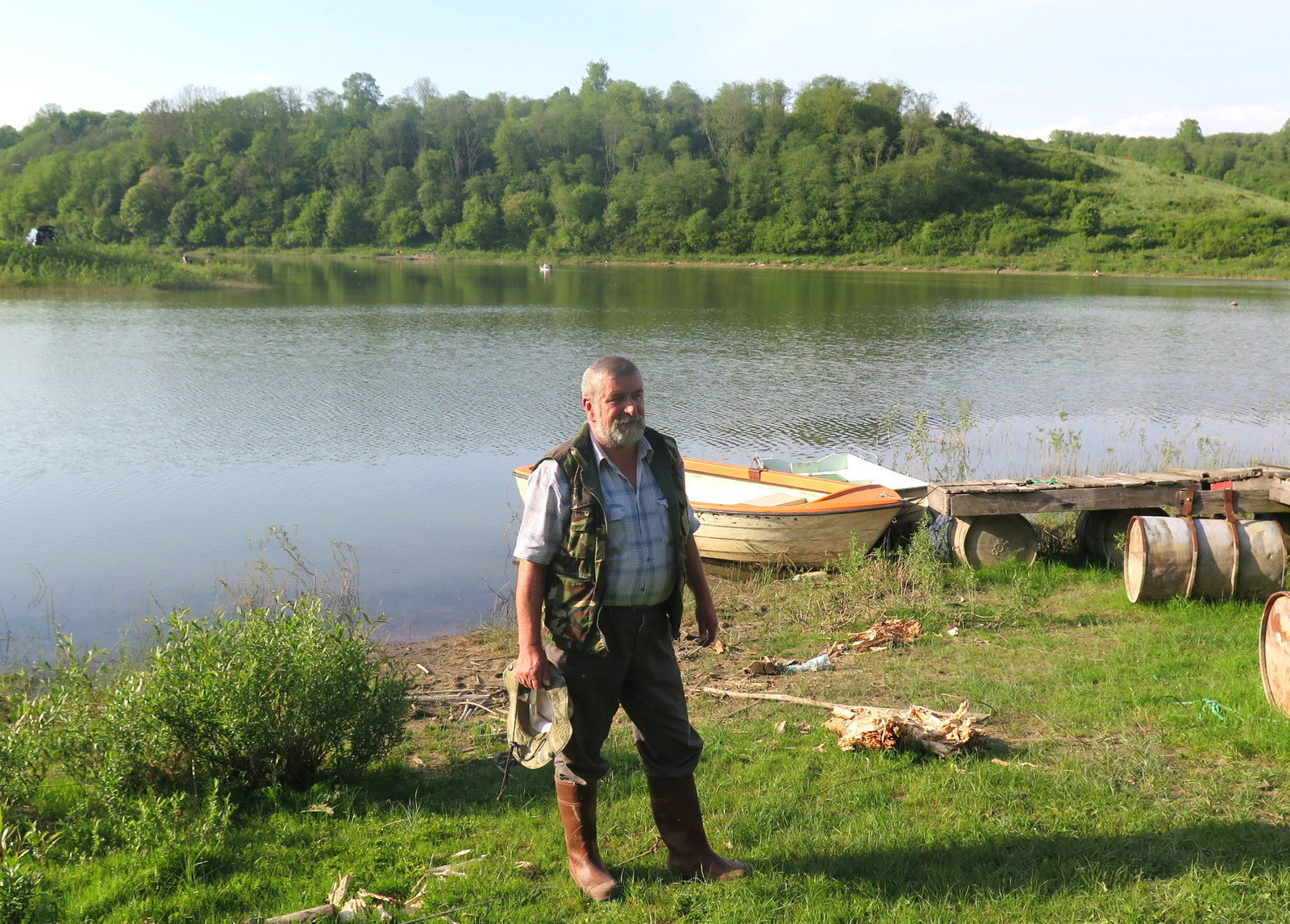
The likelihood, in all honesty, is that no one in the Mail or Huffington Post newsroom, or elsewhere, paid much attention to the story when it came across the wires. It was only a few hundred words, and a few amateurish pictures – just one of dozens if not hundreds of pieces that are pumped out by the viral news machine every day.
What none of them realised – and what brought BuzzFeed News to this remote part of Poland – was the damage their throwaway story would cause.
When Mołodyński read the Polish translation of the Mail’s “Drunk Santa” story, back in December 2013, he posted the story to his Facebook page in order to show how he’d been misrepresented. But it only made things worse by drawing more attention to the story within the close-knit community. A friend swiftly asked him to take it down.
He panicked, and began to look for help. He searched for the other eyewitness quoted in the piece, Magda Dudzinska. He found one person in the town with that surname; but, he says, “neither she, nor anyone else from her family had been at the Christmas fair”.
Part of the problem for Mołodyński is that Poland has extremely strict media laws – it is mandatory for news organisations to obtain approval from those being quoted. The idea that quotes could be distorted – or fabricated – was therefore a difficult one for many of his neighbours to process.
He asked the police to help, but there was little they could do. He wrote to TVN – “I begged them not to let me be hung out to dry” – but he got no response.
When BuzzFeed News asks what impact the story has had on him, Mołodyński gives a long sigh. “Between the story’s publication and February the next year, I never left the house. I didn’t even go to the shops.
“Then I went to a skiing event, my first time out of the house. I’d only been there for two or three hours when the abuse started: People called me a fucking wannabe reporter. I saw abuse appearing about me under the articles too, people writing things like, ‘Down with pricks like Mołodyński,’ and so on.”
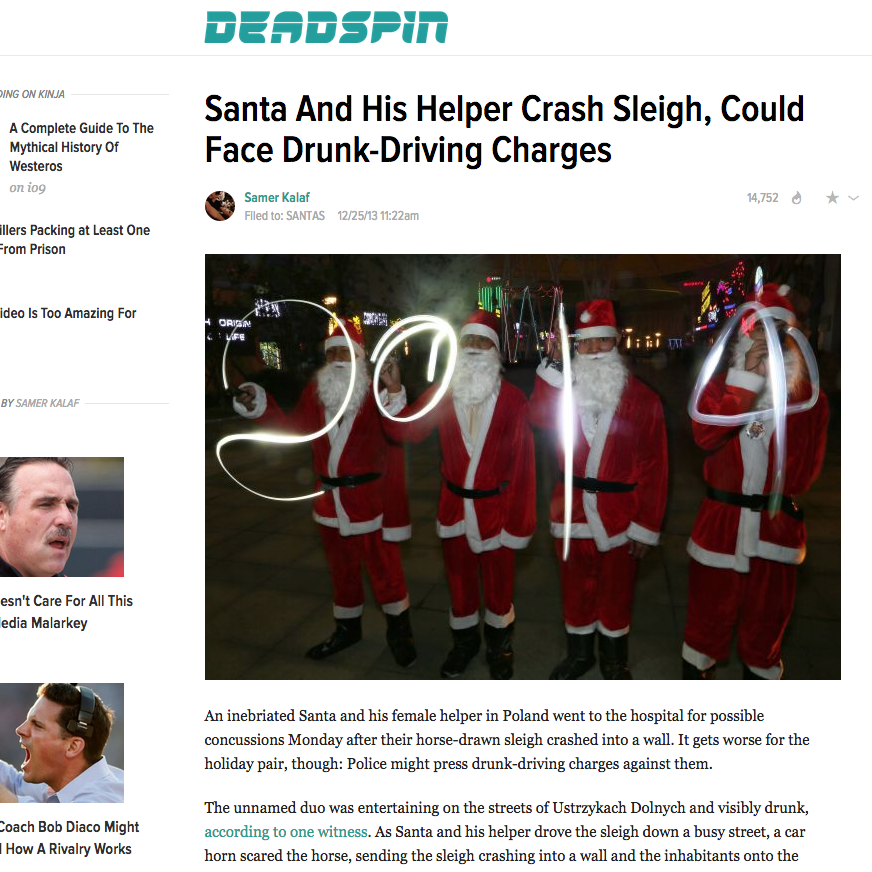
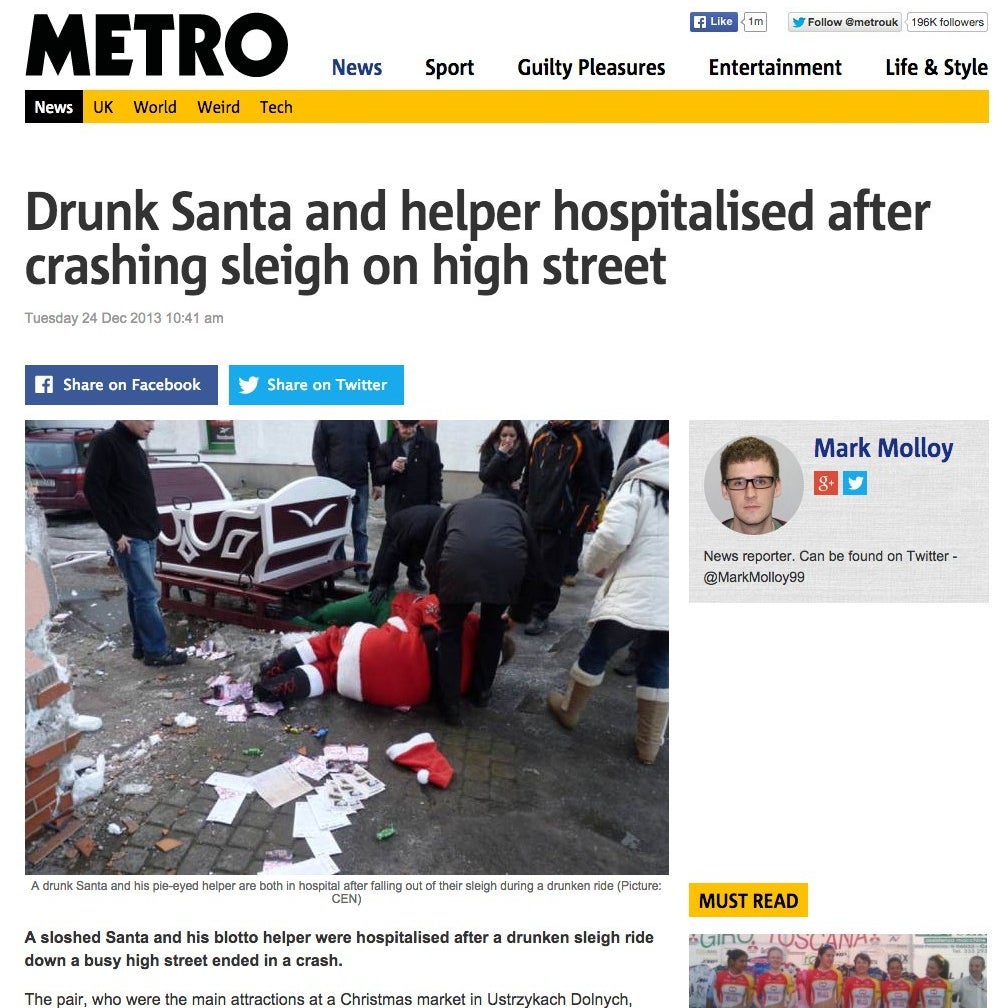
He was scared to go out: scared, even, to check the internet. “I still can’t think about it and remain calm,” he says.
As a result of the stress, a doctor prescribed him medication. Then things got even worse: he learned that the Wochs were planning to sue the people responsible for defaming them, and they considered him to be among them. He sent them the original information he’d given TVN, but didn’t get an answer. It made him feel even more stressed. It would be fair to say, he tells BuzzFeed News, that his life has been wrecked.
It wasn’t much better for the Wochs. Both of them sustained knee injuries in the crash, and Iwona’s required surgery. Iwona also suffered concussion, and remained in hospital for a few days after the accident.
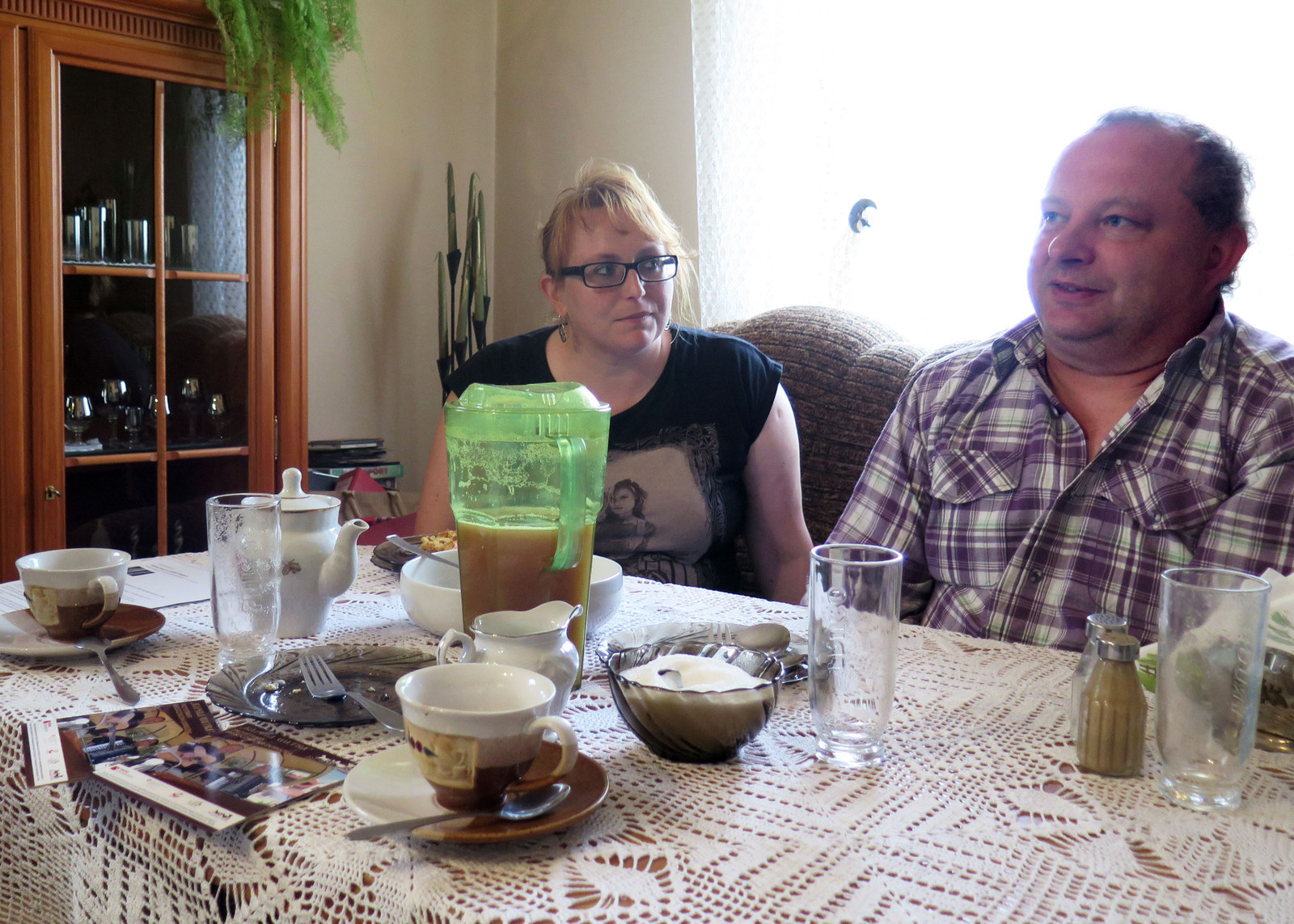
She received a few calls from the media while she was in hospital, but refused to take them. “We had a new business, and we wanted to calm the story down," she says. "You don’t want this kind of advertisement.”
On Boxing Day, the Wochs received a text message telling them to look at Mołodyński’s Facebook page. There was a link on it to the Polish translation of the Mail article. When they saw it, they were horrified. “One of our mutual friends asked him to pull it down,” says Iwona, “But by then everyone here had read it.”
The Wochs knew how harmful such a depiction of them would be. “People even knew about it as far away as Rzeszów,” says Iwona. They had no idea what to do, and immediately went to the police with all the information. The police advised them that it would have to be pursued by the district prosecutor's office.
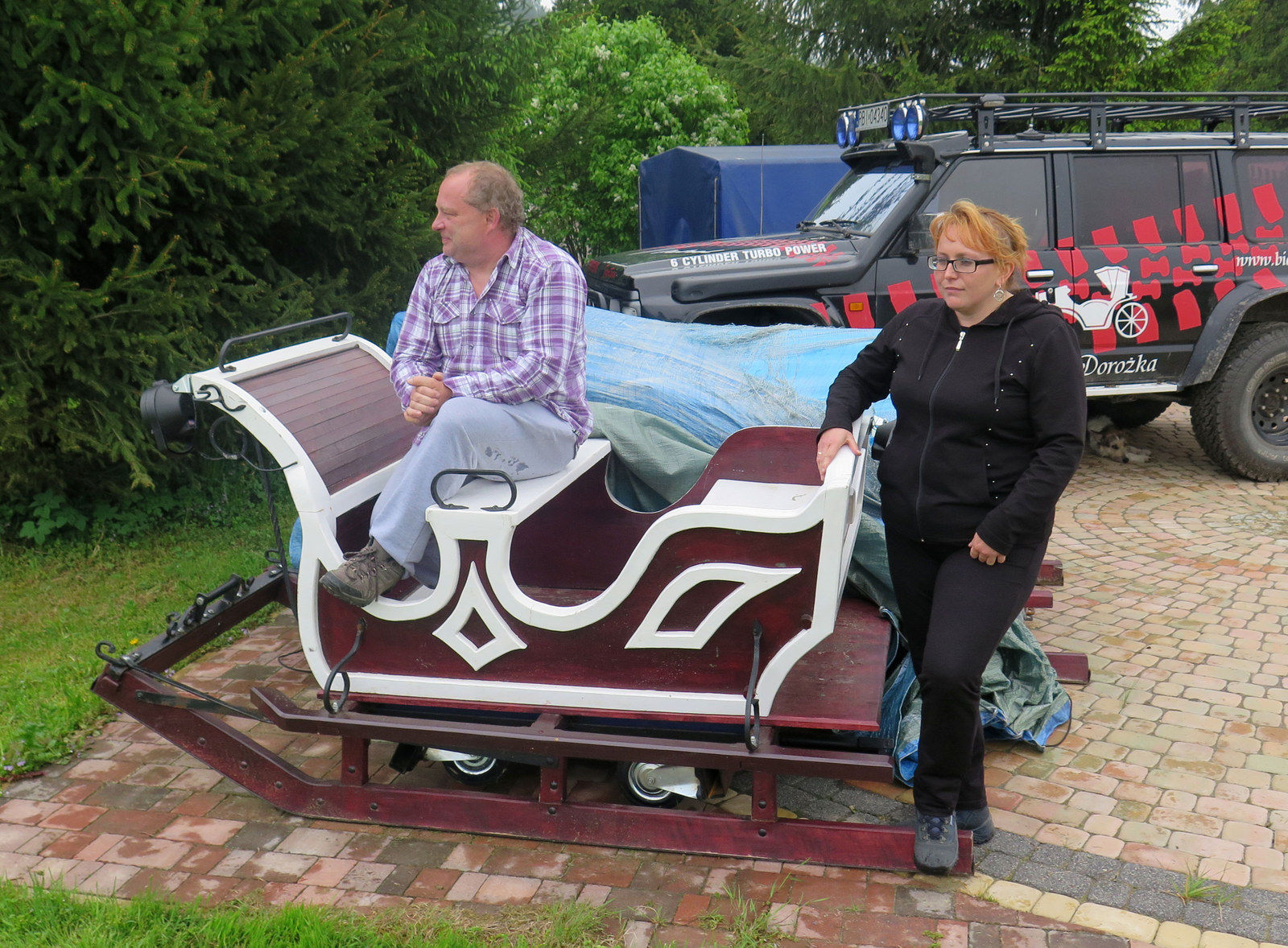
They weren’t sure a prosecutor would deal with such a petty case – but they pointed out that the story harmed the image of Poles in general, along with the reputation of the police (because the spokesperson’s words had been misquoted) as well as the Wochs themselves. However, the case was adjudged not to be in the public interest, leaving the only option for the Wochs to seek redress in the civil courts.
Thus far, they’ve not chosen to do so – but to this day, they bear a grudge against Mołodyński: "He only contacted us after we said in an interview with a local journalist called Martyna Sokołowska that we were considering suing him,” says Robert Woch. The pair are also annoyed he brought the story to local attention by posting it on his Facebook page – though they accept that a number of people had already found out about it via relatives in London.
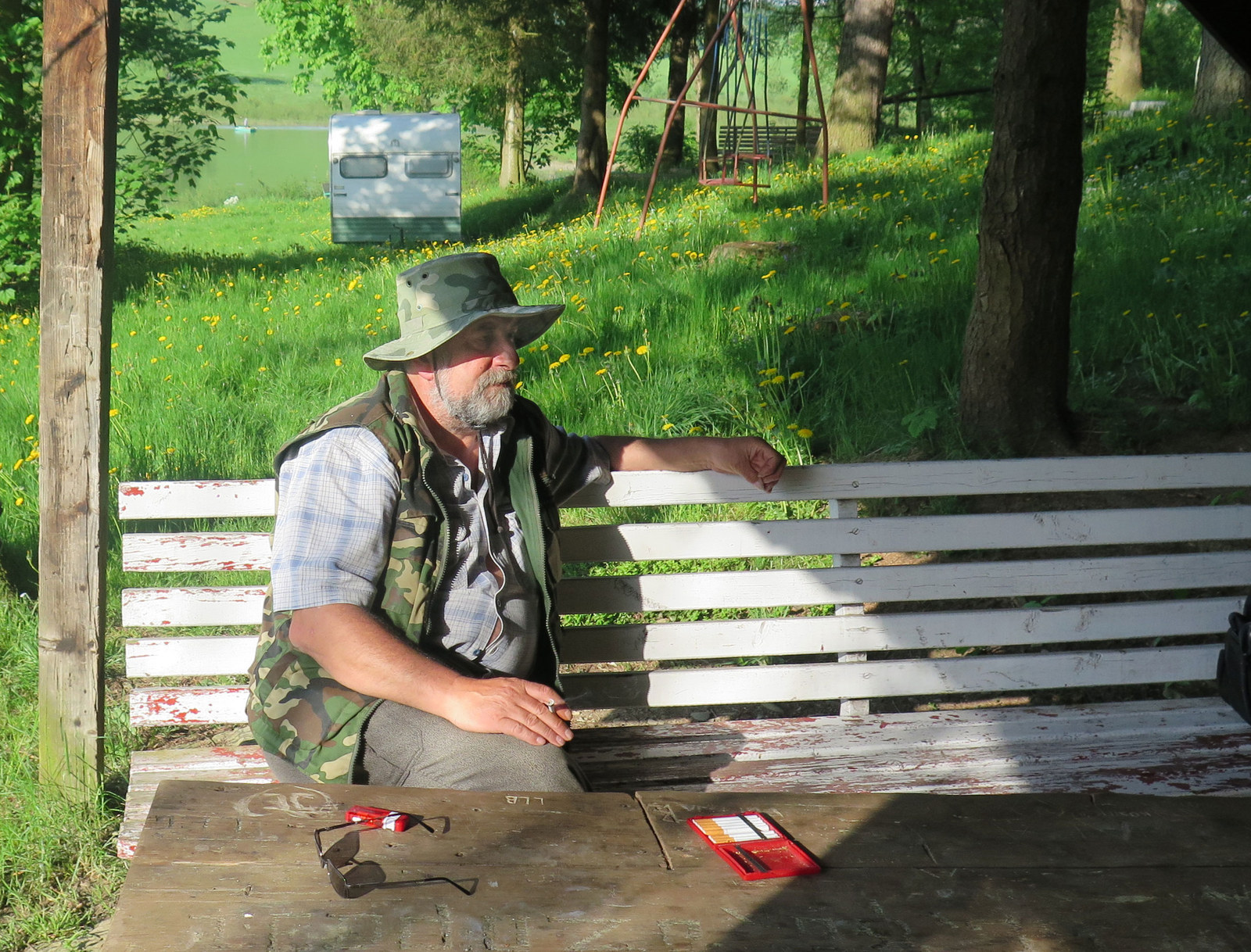
The Wochs have undoubtedly suffered – not only physical injuries but, they claim, financial losses due to the damage to their reputation. They were even thinking of shutting their business down, but couldn’t, because they’d taken out credit in order to run it.
“There were a whole bunch of rumours circulating online after the accident because of the story,” says Robert. “Things like one of the horses having rabies. We’re the only company offering horse rides in the area, and now we need to be over-cautious, because horse accidents happen, but if anything happens this time it’ll be, ‘Oh, it’s those guys again.’”
He adds: “Life is slowly getting back on track. But on the other hand, you can’t let people spread lies about you.” Iwona says that she’s still being asked about what really happened, 18 months later. Robert says: “You can’t really judge the damage it’s done over time, as it’s a new business – but it’s definitely slowed things down."
Głazowska-Krzywdzik, the policewoman, says she has escaped any criticism within the local community. But she remains stunned by the way the true events were distorted. “I could see the Polish tabloids might try to do something like this,” she says, “but at the very least, they’d frame it as a question – ‘Was this Santa drunk?’”
Of those caught up in this story, it is Mołodyński who arguably found himself in the worst situation. The Wochs might have had their reputations damaged further afield, but they still had the support of the local community. He was not so lucky: As the Wochs told BuzzFeed News, "even though we never took any action against him, we heard from several friends that people almost lynched him". Nobody wanted to believe his claim that he never said the words attributed to him.
A year and a half later, things have, he says, improved a little. But would he take such photos now? “Surely not,” he replies. “I would not want to go through that torment again.”
Przeczytaj ten artykuł po polsku.
Read our original piece on Central European News here.
